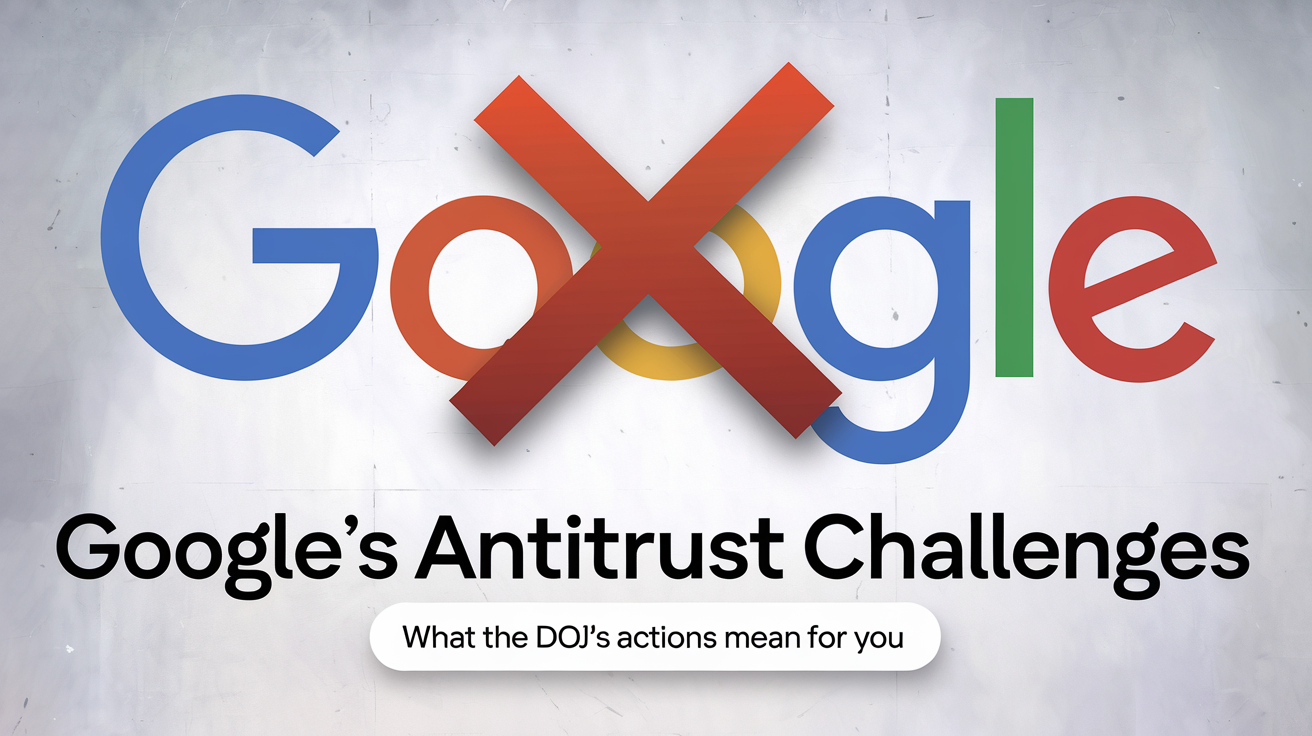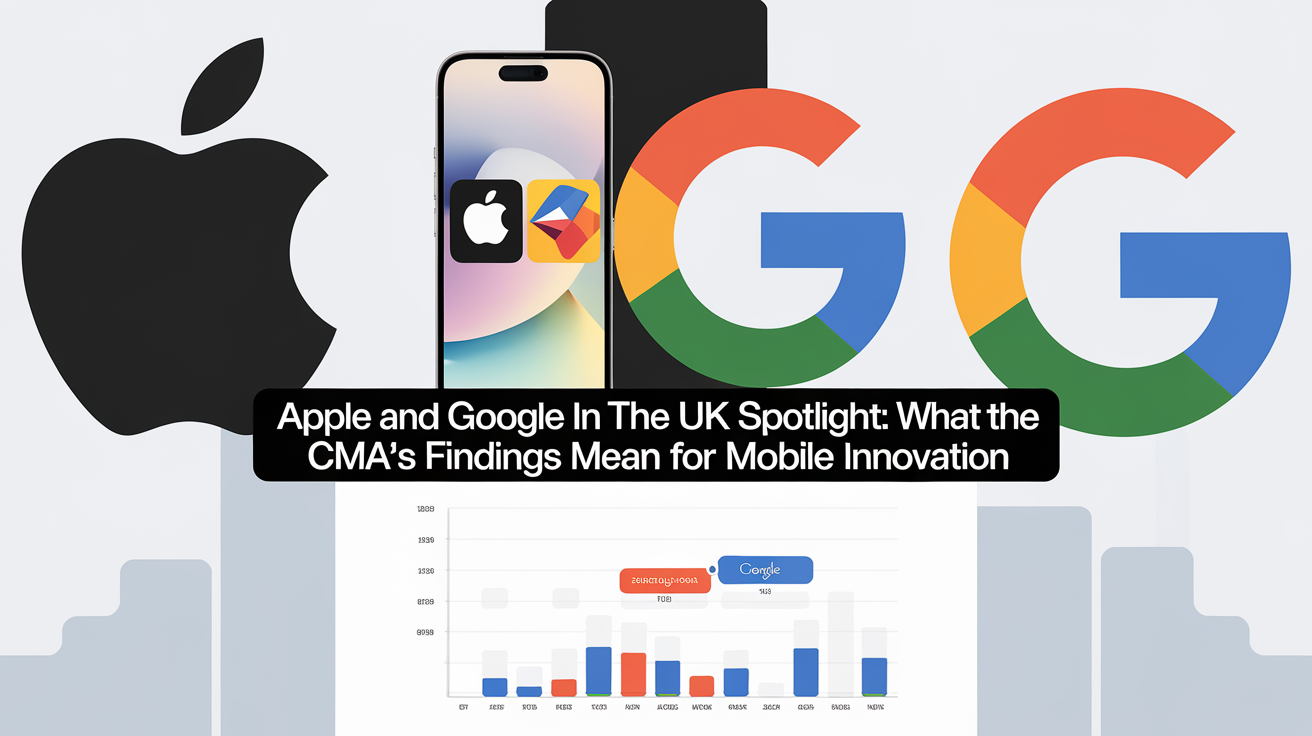Introduction: A Game-Changing Moment for the Internet
Imagine a world where you have endless choices for search engines, your online ads are tailored without manipulation, and new technologies thrive without Big Tech’s grip. Feels like a win. That’s the future the U.S. Department of Justice (DOJ) envisions as it takes on Google in one of the most significant antitrust cases of the century. This legal battle could reshape the internet as we know it, giving you more power over your online experience.
Why Is Google Under Fire?
Google’s unparalleled dominance in search engines and digital advertising isn’t just a technological achievement—it’s also a point of contention. The DOJ and 35 state attorneys general argue that Google’s practices limit competition, hurt advertisers, and reduce options for you.
Monopoly in Search
Consider this: Google controls over 90% of the global search engine market. Every time you type a query, the chances are it goes through Google Search. This stranglehold makes it hard for competitors to survive, let alone thrive.
Exclusive Deals
Do you know why Google is the default search engine on iPhones, Safari, or even Android phones? It pays billions of dollars to make that happen. This pay-to-play approach stifles competition and ensures smaller search engines stay out of sight.
Digital Advertising Power
From Google Ads to YouTube’s ad platform, Google owns tools that dominate online advertising. Advertisers claim the company uses its position to inflate prices and prioritize its ecosystem, leaving competitors and even consumers with higher costs.
The Bottom Line: The DOJ argues that this dominance isn’t just about being the best—it’s about unfairly ensuring no one else can compete.
DOJ’s Proposed Actions to Level the Playing Field
To curb Google’s dominance, the DOJ is proposing dramatic measures. Let’s break down what these could mean for you:
1. Selling Chrome
Google Chrome is the most used web browser globally, and it is tightly integrated with Google Search. By selling Chrome to an independent entity, the DOJ believes it can create a fairer market.
- What It Means for You: Imagine a browser that prioritizes user privacy instead of ads or trackers. Competing browsers could focus on features like security, speed, and personalization rather than feeding Google’s ad ecosystem.
2. Breaking Away Android
Android powers more than 70% of smartphones worldwide. While technically open-source, Google’s heavy influence ensures its apps (like Search and Chrome) dominate Android devices.
- What It Means for You: A standalone Android could let phone manufacturers partner with other services, giving you a more diverse mobile experience without being locked into Google’s ecosystem.
3. Sharing Search Technology
The DOJ might force Google to share its search algorithms and data with competitors.
- What It Means for You: Smaller search engines like DuckDuckGo could use this technology to offer better alternatives, creating more choice and transparency in search results.
How This Impacts You Directly
What does all this mean for your day-to-day life? More than you might think!
1. A World of Search Choices
Right now, your default search engine is likely Google. In the future, you might have several strong contenders, each catering to different needs.
- Example: A privacy-first engine for sensitive searches or a highly visual engine for creative projects.
2. Lower Costs Passed to Consumers
Google’s advertising practices often inflate costs for businesses, which trickle down to you in the form of higher prices. A competitive market could bring down ad prices, potentially making products and services more affordable.
3. Greater Privacy
Independent platforms could prioritize your data security instead of focusing on ad revenue. Imagine browsing without constant ad tracking or data mining.
4. A Surge in Innovation
A competitive tech environment often drives creativity. Expect to see exciting new apps, tools, and technologies as smaller players get a chance to shine.
What Critics Are Saying
While the DOJ’s actions sound promising, not everyone is convinced.
Short-Term Disruptions
You might face initial hiccups, such as slower integration between Google’s services. For example, accessing Gmail or YouTube through Chrome could feel clunkier if these entities are no longer under one umbrella.
Rising Costs for Free Services
Google’s integrated ecosystem allows it to offer free services like Gmail and Google Docs. Critics worry that breaking up the company could lead to subscription fees for these currently free tools.
Complex Implementation
Restructuring a giant like Google is no small feat. Legal battles and logistical challenges could delay these changes for years, leaving the market in limbo.
The Road Ahead: What’s Next?
The antitrust case is still unfolding, with arguments from both sides heating up. The DOJ is pushing for structural changes, but Google is fighting back, claiming its dominance benefits consumers through innovation and efficiency.
For You: While the legal wrangling continues, keep an eye on how this case might impact your favorite services. Will your next smartphone come with Bing as the default search engine? Will you finally have a browser that doesn’t track your every move? Only time will tell.
Final Thoughts: A New Digital Era?
The DOJ vs. Google isn’t just about breaking up Big Tech—it’s about reshaping the future of the internet. For you, it’s an opportunity to regain control over your online choices, save on costs, and explore a tech landscape driven by innovation rather than monopolies.
So, what do you think? Are you ready for a more competitive and consumer-friendly internet? Or do you prefer the convenience of Google’s all-in-one ecosystem? Share your thoughts—we’d love to hear them!
Stay updated on the latest tech battles and how they affect you! Subscribe to Gizopedia for more in-depth analysis, breaking news, and practical insights that empower your digital life.


























